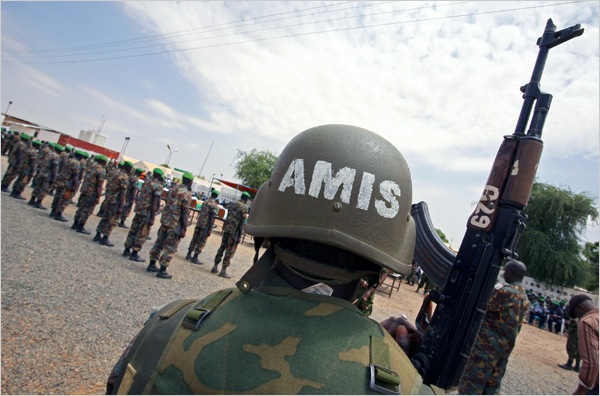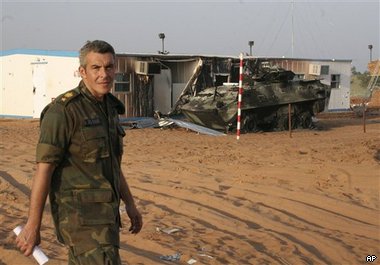The Harvard University Program on Humanitarian Policy and Conflict Research (HPCR) is offering a Senior Security Management Workshop in cooperation with the Geneva Centre for Security Policy (GCSP) in Geneva, Switzerland. The course is part of the Security Management Initiative (SMI).
The registration form for the event can be downloaded here.
Sunday, October 14, 2007
Training - UK Corridors of Power
The British Overseas NGO's for Development (BOND) is offering an innovative course entitle, 'UK Corridors of Power'. The course intends to:
'To develop participant's knowledge and understanding of the UK political process (Westminster and Whitehall) and improve their ability to navigate the UK policy-making arena.
A key skill that applies itself to a variety of NGO work is an understanding of the UK political process. Knowing how the decision-making process really works and how to get key political players on side, is vital if your advocacy is to change policy.'
While UK-focussed, the course is an interesting initiative to arm institutions and individuals on how to better arm themselves in promoting policy change with states.
'To develop participant's knowledge and understanding of the UK political process (Westminster and Whitehall) and improve their ability to navigate the UK policy-making arena.
A key skill that applies itself to a variety of NGO work is an understanding of the UK political process. Knowing how the decision-making process really works and how to get key political players on side, is vital if your advocacy is to change policy.'
While UK-focussed, the course is an interesting initiative to arm institutions and individuals on how to better arm themselves in promoting policy change with states.
AFGHANISTANICA - Afghanistan’s Security Deterioration in Visual and Quantitative Form
AFGHANISTANICA has a great compilation post looking at Afghanistan’s Security Deterioration in Visual and Quantitative Form.

The post makes clear that the UNDSS report is very focused on the security of humanitarian aid worker:
'The report makes it obvious that the “Anti-Government Elements” aren’t giving aid workers any special treatment. Incidents in 2007 up to early August:
Aid convoys attacked/ambushed/looted: 41.
Aid facilities attacked looted: 29.
Aid workers abducted: 69 (44 Afghans, 25 international).
Later killed by captors: 7 (5 Afghans, 2 foreigners).
Total aid workers killed: 41 (34 Afghans, 7 international).
These numbers are of course much less than deaths suffered by Afghan civilians, police and military and less than the losses by foreign troops. But these NGO workers are desperately needed in Afghanistan, and many of them need to be out in the field to be effective.'

The post makes clear that the UNDSS report is very focused on the security of humanitarian aid worker:
'The report makes it obvious that the “Anti-Government Elements” aren’t giving aid workers any special treatment. Incidents in 2007 up to early August:
Aid convoys attacked/ambushed/looted: 41.
Aid facilities attacked looted: 29.
Aid workers abducted: 69 (44 Afghans, 25 international).
Later killed by captors: 7 (5 Afghans, 2 foreigners).
Total aid workers killed: 41 (34 Afghans, 7 international).
These numbers are of course much less than deaths suffered by Afghan civilians, police and military and less than the losses by foreign troops. But these NGO workers are desperately needed in Afghanistan, and many of them need to be out in the field to be effective.'
Darfur - Peacekeepers Without a Peace to Keep
The New York Times has a short piece entitled, 'Peacekeepers Without a Peace to Keep'.
The article continues the debate on how damaging the attack on AU peacekeepers in Haskanita will be in the short- and mid-term. While this take on the incident isn't new, the author does start to pose some more critical questions about whether military intervention in Darfur is already too late?- Or, is it too early?

A recent statement by the AU force commander captured the challenge facing peackeepers- 'AU outnumbered, outgunned in Darfur'. It is easy to make calls for peacekeepers to enforce the 'Responsibility to Protect', as Roméo Dallaire does: '...the troops must “go inside the camps, do night patrols and snap inspections, essentially go wherever they need to, without the Sudanese Army or police blocking them.” He said they also need to go after “every one of those splinter groups” and they’ll need the proper gear to do so.' How realistic are these calls?
A number of uncomfortable comparisons in the article are made between Darfur and Somalia. Yet perhaps a better comparison would be the early days of UNPROFOR in the former Yugoslavia? The lack of political will in FRY crippled even relatively well-equipped peackeepers. Can UNAMID hope for better?
The article continues the debate on how damaging the attack on AU peacekeepers in Haskanita will be in the short- and mid-term. While this take on the incident isn't new, the author does start to pose some more critical questions about whether military intervention in Darfur is already too late?- Or, is it too early?

A recent statement by the AU force commander captured the challenge facing peackeepers- 'AU outnumbered, outgunned in Darfur'. It is easy to make calls for peacekeepers to enforce the 'Responsibility to Protect', as Roméo Dallaire does: '...the troops must “go inside the camps, do night patrols and snap inspections, essentially go wherever they need to, without the Sudanese Army or police blocking them.” He said they also need to go after “every one of those splinter groups” and they’ll need the proper gear to do so.' How realistic are these calls?
A number of uncomfortable comparisons in the article are made between Darfur and Somalia. Yet perhaps a better comparison would be the early days of UNPROFOR in the former Yugoslavia? The lack of political will in FRY crippled even relatively well-equipped peackeepers. Can UNAMID hope for better?
Monday, October 01, 2007
Sudan- Peacekeepers Look for Missing in Darfur
There are numerous articles chronicling a rebel attack on an African Union base in Haskanita, northern Darfur yesterday. Apparently 1,000 rebel gunmen overwhelmed the base and its 150 troops before dawn. At least 10 peackeepers have been killed, and between 20 and 50 are still missing.

The rebels looted vehicles and ammunition, and it took Sudanese government troops to chase them away. Photos show government troops looting the leftovers, and burnt armoured vehicles. A quote from an anonymous officer underlines the stakes for the AU Force:
'"It may not be the right political thing to say, but the government forces saved us," said an AU officer, who also asked not to be named because of military regulations.'
The IHT published the first obvious article on the future of Darfur and peacekeeping, namely, whether this tragic incident won't un-nerve other nations considering contributing to the more robust hybrid AU-UN force for Darfur. A spokeman for OXFAM framed the attack in light of the kinds of threats that humanitarian agencies are facing:
'"It's indicative of the complete insecurity," said Alun McDonald, a spokesman for the Oxfam aid organization in Sudan. "These groups are attacking anybody and everybody with total impunity."
McDonald added that armed groups were "increasingly targeting aid workers to steal their vehicles, radios and logistical stuff."
He said the attack on the peacekeepers "sounds quite similar to that, just on a much larger scale."'


The rebels looted vehicles and ammunition, and it took Sudanese government troops to chase them away. Photos show government troops looting the leftovers, and burnt armoured vehicles. A quote from an anonymous officer underlines the stakes for the AU Force:
'"It may not be the right political thing to say, but the government forces saved us," said an AU officer, who also asked not to be named because of military regulations.'
The IHT published the first obvious article on the future of Darfur and peacekeeping, namely, whether this tragic incident won't un-nerve other nations considering contributing to the more robust hybrid AU-UN force for Darfur. A spokeman for OXFAM framed the attack in light of the kinds of threats that humanitarian agencies are facing:
'"It's indicative of the complete insecurity," said Alun McDonald, a spokesman for the Oxfam aid organization in Sudan. "These groups are attacking anybody and everybody with total impunity."
McDonald added that armed groups were "increasingly targeting aid workers to steal their vehicles, radios and logistical stuff."
He said the attack on the peacekeepers "sounds quite similar to that, just on a much larger scale."'

Subscribe to:
Comments (Atom)